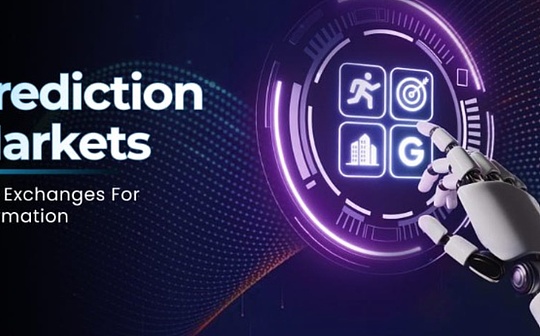
Author: Tulip King; Source: X, @0xTulipKing; Compiler: Shaw Bitcoin Vision
Prediction markets are not yet fully understood, and this is your opportunity.We are witnessing a complete reshaping of how markets work, how information is priced, and most importantly – how the future is shaped.If you ignore this, you will miss the greatest trading opportunity the market has seen since options became electronic.
iPhone moments
In every technological revolution, there is a wonderful period when people are unable to detect disruptive changes because they are stuck in the old way of thinking.In 2007, Nokia executives looked at the iPhone and said, “It doesn’t even have a keyboard.” They compared it to a cell phone, but ignored that it should be compared to a computer.The iPhone isn’t competing with existing phones—it’s subverting the concept of a single-function device.
This is exactly what is happening in prediction markets right now.People look at Polymarket and think it looks like a weird betting site with illiquidity.They compare it to DraftKings (a sports betting platform) or the Chicago Mercantile Exchange (CME)
In comparison, it pales in comparison.They made a Nokia mistake.Polymarket is not a better betting site – it is replacing the entire concept of professional financial markets.Think about the essence of every financial instrument when you strip away all the complexities:
-
options: Bet “yes” or “no” on the price level;
-
insurance: A “yes” or “no” bet on the occurrence of a disaster;
-
credit default swap: Bet “yes” or “no” on bankruptcy;
-
sports betting: A yes or no bet on the outcome of a sporting event.
We have built entire trillion-dollar industries around what are essentially binary oppositions, each with its own infrastructure, regulatory systems, and monopoly intermediaries to extract profits from them.
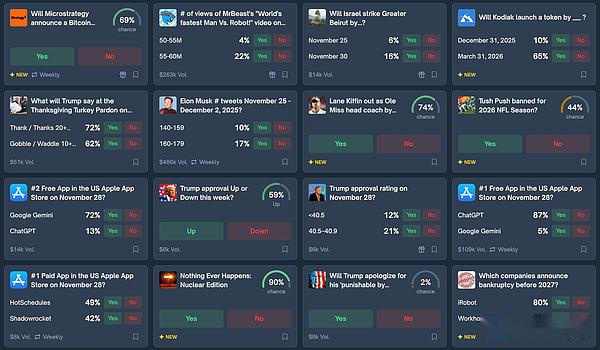
Polymarket reduces all of this to a single essential: create a market for any observable event, let people trade it, and settle when reality determines the outcome.It’s no better than DraftKings at sports betting, nor better than CME at derivatives.What it does is something more fundamental—simplify all markets down to their most basic units and rebuild from there.Polymarket is like an iPhone, everything else is just an app.
multi-dimensional transaction
When all transactions take place in the same venue, it unlocks possibilities that didn’t exist before.Just imagine, five years ago, if you wanted to build a position that said, “I think the Fed is going to raise rates, but tech stocks are going to go up anyway because Trump is going to tweet some good news about artificial intelligence.” You would need to open accounts at different financial institutions, navigate different regulatory frameworks, and use different forms of leverage.As for the “Trump mentioned” part of the transaction, there was no corresponding market at that time.
On Polymarket, this can be done in just three clicks.What’s more, these are not three separate bets, but rather a coherent view of the world expressed through interrelated positions.You can go short on “The Fed pauses raising interest rates,” long on “The Nasdaq hits a record high,” and long on “Trump will mention artificial intelligence in his next speech.”This correlation is a key trade in itself.
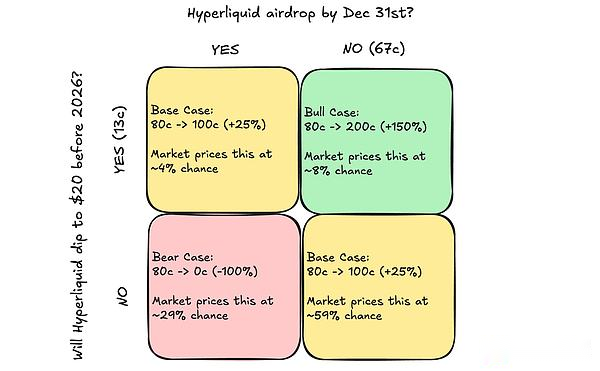
Give an example to those students who are still behind.Last month on Polymarket, you could construct a position like this: buy the position “Hyperliquid will not airdrop before December 31st” at a price of 67 cents, and buy the position “will Hyperliquid fall to $20 before 2026” at a price of 13 cents.Consider the resulting matrix here:
-
Your most profitable situation: Hyperliquid is not conducting airdrops and the price dropped to $20 this year.Given the current market conditions, this seems to be a reasonable view and the price should be higher than the 8% currently given by the market.You are buying this outcome at a low price.
-
The situation of your small profit: Hyperliquid conducts an airdrop causing the price to drop to $20, or the price drops to $20 without an airdrop.These two situations are most likely to occur, with a probability of 63%.
-
What if you pay full compensation?: Hyperliquid conducts an airdrop and the price remains above $20.Given that the market is very worried about the new supply that comes with team unlocks, it seems like an airdrop that introduces more supply will be met with a very negative reaction.The probability of this outcome occurring should be less than 29%, so you are selling this outcome at a high price.
This may sound like hedging, but it’s much more than that.It expresses a complex view of how the market handles new token supply that is difficult to express accurately anywhere else.
Traditional markets force you to condense complex ideas into rough directional bets.You could have a complicated argument that Nvidia (NVDA) would beat earnings estimates, but still fall because market expectations were ahead of reality.In the options market, you can only choose between calls and puts, and perhaps construct a spread package that barely gets your point across but is costly.In Polymarket, you only need to buy the two options “NVIDIA’s earnings exceeded expectations” and “NVIDIA’s stock price fell 5% after the release of earnings report” to accurately express your views.
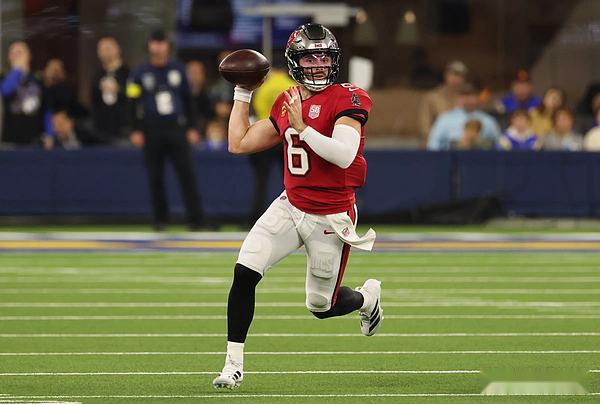
The real brilliance comes when you start thinking about the cross-market correlations that shouldn’t exist but do.For example, the Hurricanes are approaching Florida and the Tampa Bay Buccaneers are playing in Detroit.Conventional wisdom holds that the two events are unrelated.But here’s a hypothesis: If a hurricane did hit Florida, NFL referees would favor the Buccaneers, creating an uplifting story.So you bet 60 cents on the Buccaneers to lose and 20 cents on the hurricane hitting Florida.You’re not betting on an outcome, you’re betting on a structure of association.You benefit from an understanding of how narrative affects referee decisions.
This is what I mean by prediction markets not competing with existing markets – they operate at a completely different level of abstraction.While all other markets only offer one operating option, Polymarket offers unlimited options and, more importantly, allows you to choose a specific combination of options based on your understanding of how the world works.
Why are the “smart people” wrong (again)?
The first criticism you hear about prediction markets is always liquidity.”Oh, you can’t trade at scale.” “The spreads are too big.” “It’s just some idiots gambling with their lunch money.” ButThat’s not a vulnerability – that’s your opportunity.
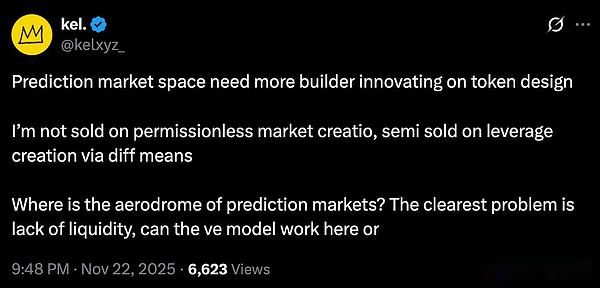
Think about the reasons why liquidity is about to explode from a mechanical perspective.Traditional market making is actually relatively simple – you usually make markets on things that are clearly related to other things.Stock options are related to stock prices, and futures are related to spot prices.Everything has hedges, correlations, and models to rely on.This is why a handful of firms like Citadel and Jane Street are able to make markets in thousands of financial instruments.
Predicting the market is even harder.Each market type requires its own specialized intelligence:
-
sports marketThere is a need for models that can be updated with every score, every injury report and every weather change.
-
political marketNatural language processing technology is needed to parse polls, speeches, and social media sentiment.
-
event marketThere is a need for machine learning systems that can calculate basic probabilities based on historical data.
-
Mention the marketA language model trained on thousands of text records is required.
You can’t have one market maker monopolize all markets because each market requires completely different expertise.
This is actually good for liquidity in the long run.Instead of seeing a handful of giants monopolizing all market making operations, we will see an explosion of professional market makers.Some teams of quants will become the best in the world at pricing mentions in the market.Other teams will lead weather-related events.There are also teams that will focus on celebrity behavior.This fragmentation of what appears to be weakness will actually create resilience and depth.
Over the next five years, we will see the emergence of an entirely new type of financial company – prediction market experts.They don’t make markets in the stock or bond markets, they make markets in reality itself.And the first companies to successfully do this at scale will become the bulwarks of the new financial system.
Disturbing facts about the truth
Now let’s make some real arguments: Prediction markets are not about predictions themselves at all, they are about creating a financial incentive for truth.We live in a weird time where everyone has an opinion on everything but no one actually takes the risk.Your favorite Twitter analyst has predicted twelve recessions that have only occurred twice in the past.Those commentators at CNBC have fucked up more accounts than Do Kwon.Yet they retain their platform, their audience, and continue to make wrong predictions without any consequences.
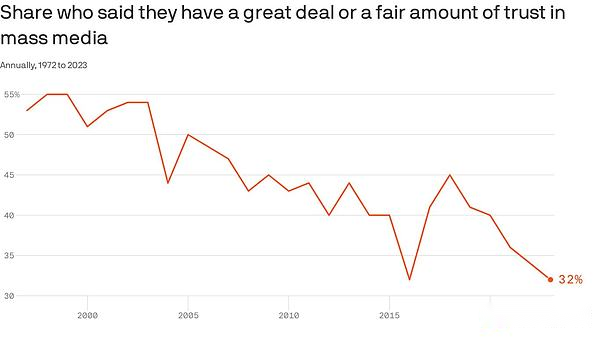
This model is unsustainable and everyone knows it deep down.We build an information ecosystem that rewards engagement over accuracy, where having a loud voice is more important than being right.Social media has exacerbated the problem—the hottest claims now win, regardless of whether they are factually correct.The person with the most fans becomes the expert, and the so-called expert is the person who can get the most likes.
Prediction markets turn this model on its head.Suddenly, there’s a price to pay for being right, and there’s a price to pay for being wrong.The market doesn’t care if you graduated from Harvard, have a Blue V certification, or have written a book on markets.It only cares whether your prediction is correct.When you create a system that rewards accuracy only, something wonderful happens: People who predict correctly suddenly have a reason to speak up, and people who predict wrong finally have a reason to shut up.
But it’s not just a simple transfer of wealth from those who shouldn’t be distributed to those who should.Prediction markets are building a parallel information system that operates very differently from our current media ecosystem.
in the old world: Information spreads in social networks based on virality.
in prediction markets: Information is priced based on reality.
These are essentially different selection mechanisms and thus produce very different results.

We have been observing this phenomenon in real time at Polymarket.The predictive power of political markets already exceeds that of any aggregate polling data.Markets linked to the Fed were already experiencing volatility even before any economists updated their forecasts.Earnings markets are already pricing in results that won’t appear in analyst reports for weeks.This is not because prediction market traders are smarter, but because their incentives are to make sure their predictions are correct, not to pursue gimmicks.
Bounty markets, not prediction markets
Now things are getting really weird, and I think everyone is missing the most important dynamic.We keep calling these “prediction markets,” but that’s like calling Bitcoin “digital gold” — technically true, but completely missing the larger point.True prediction markets are passive observers.They price probabilities but do not affect outcomes.Weather futures markets do not change the weather.But Polymarket is not passive, and that’s exactly the point:Any market with human participants has the potential to change outcomes.
Let me explain exactly what I mean.Someone previously made a bet on whether someone would throw a green object during a WNBA game, and someone calculated this:
-
Buy $10,000 worth of YES at 15 cents per bet.
-
Throw objects yourself.
-
Gain $66,000 when the market result is “YES”.
-
Net profit after legal fees and lifetime ban: About $50,000
The equilibrium dynamics here are very interesting.In theory, the WNBA’s reward for disorderly conduct should be set at exactly this price:
Amount of compensation = criminal charge + social stigma + lifetime ban + effort required
If the price is too high, it will attract imitators; if the price is too low, no one will care.The market will find the best equilibrium price.
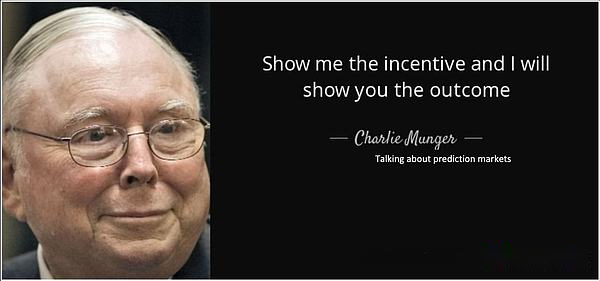
The “prediction market” has become a bounty market—it no longer predicts whether someone will throw something, but instead offers a specific amount of money for someone to make it happen.This is not a vulnerability, nor is it manipulation, but the most important feature of prediction markets that no one mentions.
Consider this thought experiment.I decided to run for mayor of New York City.The odds of winning given by the market are quite reasonable, only 0.5%.Based on this probability, I can spend $100,000 to buy 20 bets, each worth $5,000.If I won, each bet would bring in a staggering $1 million.Even more interesting is that I receive these bet shares as compensation from the campaign.I hired 20 hit men and promised them a million dollars each if we ended up winning.
I had just created something that should never have existed: a market-funded political campaign in which my leverage increased as the odds of winning decreased.The market is essentially saying, “The probability of this outcome happening is too low, so we’re giving you 20-to-1 odds on making it happen.” The prediction becomes a bounty.The market isn’t just observing reality – it’s funding a specific version of the future.
Some events are completely unaffected by the bounty mechanism.For example, being elected president is inherently valuable, and no prediction market bounty can significantly increase its appeal.But for thousands of other things—from corporate decisions to cultural phenomena to sports results—this bounty system is real and it works.
We do not have the political future envisioned by Robin Hanson, in which prediction markets guide governance with their wisdom.What we get instead is something even weirder: markets paying people to make certain future events happen.
Conclusion
My prediction is: within ten years, the Polymarket model will swallow up most of the traditional financial system.This is not only because it is a trading venue with lower fees and better experience, but also because it integrates all markets into a single basic platform and rebuilds on this basis, which is fundamentally much more efficient than maintaining thousands of specialized market structures.
The dominoes will fall in the following order:
-
DraftKings-Sports betting is essentially a prediction market with lower odds.
-
CBOE– Options are essentially complex binary bets on price levels.
-
insurance——It is just a prediction market, only one party can trade.
-
credit market– Bankruptcy prediction (with additional steps)
Every vertical will resist, regulate, and ultimately succumb because they will realize they are not competing against better products—but against better principles.
What we are really witnessing now is a complete reconfiguration of how markets work.You are no longer betting on prices, interest rates, or volatility, but on events, correlations between events, and most importantly, changing the probability of an event occurring.
Smart investors should prepare for this now.It’s not just a matter of buying a token or trading the market, but thinking about what would happen when any observable event could have an active market.What happens when every corporate decision has a prediction market?What happens when every piece of legislation comes with odds?What happens when every cultural trend has a price?What happens when entrepreneurs can raise money by selling shares of their seemingly unlikely success?What happens when anyone with confidence in the future can turn that confidence into leverage?
We’re not just building a better market, we’re building a system that incentivizes people to create the future.






